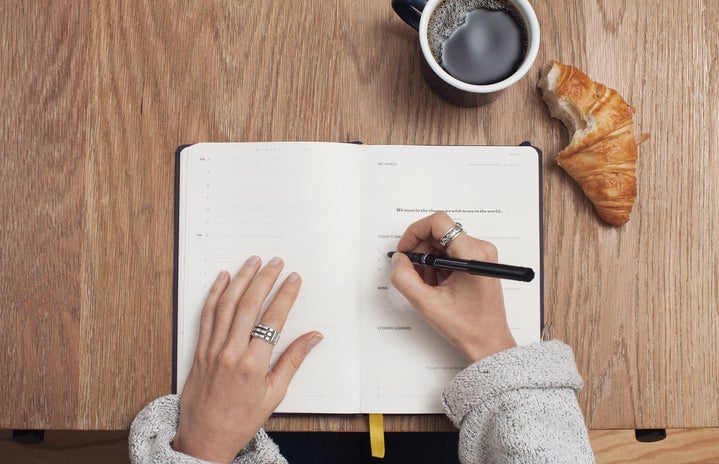Unfortunately, new year’s resolutions have never been my thing, and I don’t see it becoming a tradition I routinely partake in anytime soon. Especially after two years of an ongoing global pandemic with no end in sight, I’m not at all motivated to ring in the new year with a “new year, new me” mindset.
However, many people consider the beginning of a new year to be a clean slate for setting goals to achieve something they’ve wanted to address and change for a while. But I’m not here to write about “how to achieve your new year’s resolutions” or “how 2021 felt mediocre at best for many people.”
A few months ago, my professor* brought in a reflection activity for an in-class discussion. Frankly, Gen Z’s concept of self-care is not my favourite thing in the world, but this discussion was different. It wasn’t about face masks or bubble baths. Instead, it was about intention and being intentional. Our class talked about three distinct types of activities: self-care, self-nurture and self-harm.
Self-Care
These activities are essential to survival. They meet your basic needs of body, mind and spirit. Eating, sleeping or maintaining basic hygiene are all self-care activities. But more than just meeting basic survival needs, self-care activities can also manifest as awareness and response to a need, such as seeking medical care. It can involve specifically planning time aside to meet regular ongoing needs, including eating regular meals on time, taking a shower or taking medication every day.
Self-Nurture
These activities are slightly harder to understand because “self-nurture” is not a term we hear used very often. The difference between self-care activities and self-nurturing activities is that these activities meet the needs of body, mind and spirit for you to thrive- not survive. Activities such as listening to music, sleeping in on the weekends or going for a walk may bring comfort and enjoyment. Each person has their own list of activities they consider self-nurturing and nourishing to their sense of well-being. Self-nurture activities are intentional and are important because they reflect conscious planning and setting time aside for yourself.
Self-Harm
Although sometimes these activities can be dangerous, they are defined as activities that neglect the basic needs of your body, mind and spirit. Sometimes, self-harm activities can be a coping mechanism for temporary relief or used to gain control of strong feelings. Over-productivity, poor eating habits or frequency of meals, excessive exercise and many other examples may cause harm to your well-being.
After my professor explained the differences between these three types of activities, we each created three columns and wrote what self-care, self-nurture and self-harm behaviours looked like for us individually. We quickly realized that many daily activities could belong to all three categories. For example, eating is essential for my survival (self-care) and eating an unfamiliar cuisine at a new restaurant is enjoyable (self-nurture), but sometimes I don’t eat enough or eat too much throughout the day (self-harm).
Although I don’t have any new year’s resolutions going into 2022, understanding these three types of activities has reframed my perspective on what I would like to focus on and address in 2022, without creating concrete goals. If you’re not a fan of new year’s resolutions either, I highly recommend you to write down your self-care, self-nurture and self-harm activities. Remember, it’s the intention that defines which category an activity belongs to, not necessarily the activity itself. I hope this helps!
* Originally developed by Michelle Munroe and adapted by Elizabeth Mitchell


